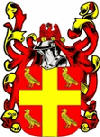rtrapasso
Posts: 22653
Joined: 9/3/2002
Status: offline

|
Year 1263:
Simon de Montfort, earl of Leicester, returns to England from the Continent in April and leads a rebellion against Henry III that will be remembered as the Barons' War (see 1262). The Provisions of Oxford are restored in July, but the lesser barons and county knights do not support Leicester, nor do the men of London, the Cinque Ports, and many clergymen. Leicester is obliged to accept arbitration by France's Louis IX in December (see 1264).
Scotland's Alexander III defeats the Norwegian king Haakon IV to win the Hebrides. Alexander has laid formal claim to the islands that have had Scandinavian settlements since the 9th century. Haakon has sailed around the west coast of Scotland to Arran; Alexander has prolonged negotiations there in anticipation of autumnal storms. Haakon finally attacks but encounters a terrible storm that severely damages his ships. The Battle of Largs October 12 is not decisive, but it leaves Haakon in a hopeless position. He turns for home but dies en route at age 59 after a 46-year reign in which he has prohibited blood feuds and established primogeniture in the monarchic succession.
Aleksandr Nevski, grand duke of Vladimir, dies at Gorodets on the Volga River November 14 age 43 (approximate); the force of his personality (along with the fear of the Mongols) has won the support of princes, boyars, and clergy, but their consolidation ends with his death, and the country begins to dissolve into feuding principalities (see Muscovy, 1326).
A Venetian war fleet off the Greek island of Spetsopoula pounces on a Genoese convoy of merchant carracks and fighting galleys in early summer and gains a victory that will bring a partitioning of naval control in the Eastern Mediterranean. Venice has learned of the convoy's departure from its Monemvasia refuge for a destination either in the Cyclades, Constantinople, or the Black Sea, where Genoa holds a dominant trade position.
Pope Urban IV determines to end Hohenstaufen power in Italy and offers the kingdom of Naples and Sicily to Charles d'Anjou, now 36, brother of France's Louis IX. A veteran of the Seventh Crusade, Charles has forced several communes in the Piedmont to accept his suzerainty (see 1265).
The Cathedral of Pisa (Italy) is built to commemorate a naval victory over the Saracens at Palmero. See also 1240 Construction; 1318 Construction.
|
 Printable Version
Printable Version











 ---->>>> later folks
---->>>> later folks











 New Messages
New Messages No New Messages
No New Messages Hot Topic w/ New Messages
Hot Topic w/ New Messages Hot Topic w/o New Messages
Hot Topic w/o New Messages Locked w/ New Messages
Locked w/ New Messages Locked w/o New Messages
Locked w/o New Messages Post New Thread
Post New Thread